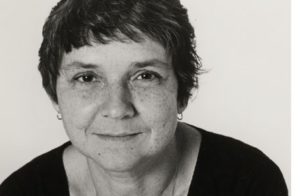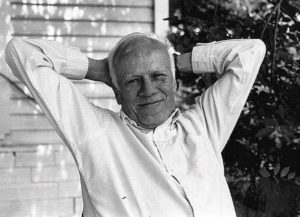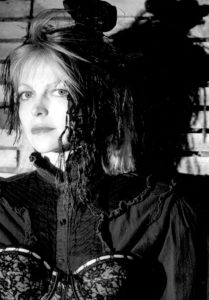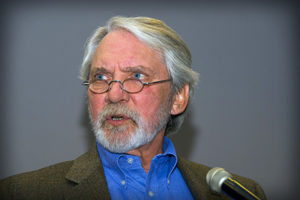Updike, John

At night–the light turned off, the filament
Unburdened of its atom-eating charge,
His wife asleep, her breathing dipping low
To touch a swampy source–he thought of death.
– John Updike, “Burning Trash”
Read this interview with John Updike from the Paris Review:
The Art of Fiction No. 43
John Updike, ca. 1968. In 1966, when John Updike was first asked to do a Paris Review interview, he refused: “Perhaps I have written fiction because everything unambiguously expressed seems somehow crass to me; and when the subject is myself, I want to jeer and weep. Also, I…
How long will our bewildered heirs
marooned in possessions not theirs
puzzle at disposing of these three
cunning feignings of hard candy in glass–
the striped little pillowlike mock-sweets,
the flared end-twists as of transparent paper?
– John Updike, “Venetian Candy”
Watch John Updike in conversation with the New York Times:










